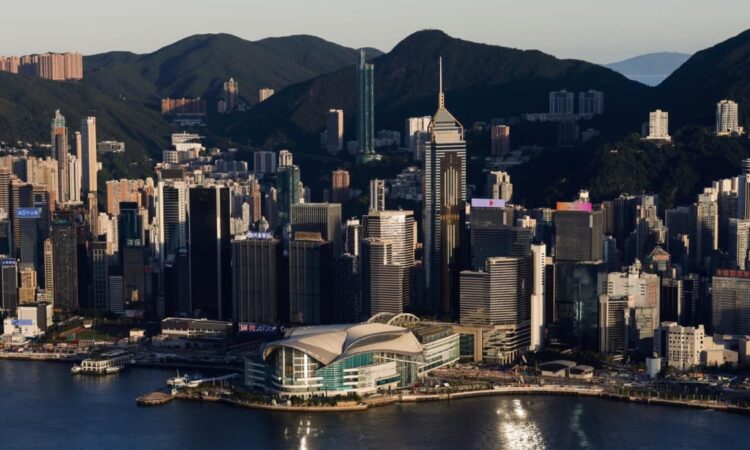Rather than beat up on the mainland, investors at a Hong Kong central bank event focused their doom and gloom on their home market, the US – Opinion News

By Henny Sender
It may not be obvious when international sentiment about Chinese growth and markets remains deeply depressed, but the case for China proved surprisingly strong this past week as Hong Kong’s central bank invited an all star cast of international financiers to its second annual forum earlier this week.
Most of the invitees were bankers and investors coming from Wall Street. Yet rather than beat up on the mainland, where the collapse of the property market
In a panel appropriately entitled the Next Crisis, Bob Prince, the co-chief investment officer of Ray Dalio’s Bridgewater Associates, explained what he referred to as the potential inability of the US government to refinance its ever burgeoning debt, given who buys these securities.
That’s because 27% of demand comes from foreign buyers, with another 18% accounted for by central banks—in other words, 45% of all demand comes from abroad. That can be worrying when a combination of geopolitics and economic fundamentals is reducing the appeal of these securities in many parts of the globe. “Whether they will roll over is a long term issue,” he concluded.
“The US forgets it relies on the kindness of strangers,” Anne Richards, CEO of Fidelity International, added, speaking on a separate panel. While the panels did not go into detail, in fact foreigners are no longer as kind as they were even a few months ago, suggesting that rates could go much higher than even the Fed anticipates. Both Japan and China have already reduced their holdings of US government debt from a peak of $1.3 trillion to about $800 billion, albeit for very different reasons.
The Chinese prefer to buy gold, fearing that just as the US seized $300 billion from the Russians, if tensions increase, they could be the next target. Meanwhile, as yields rise in Japan for the first time in years, the big Japanese investors are bringing capital back to Tokyo, rather than invest so much abroad, with the need to hedge the currency risk of holding dollar debt.
Meanwhile, much discussion at the HKMA Forum was devoted to the fact that an increasing part of financial activity in the US has shifted from public to private markets while many of the dominant players in the markets today come from the lightly regulated world of the non-banks.
The conclusion—especially from the non-bankers in the room—is that today banks matter less, and that that is not a bad thing.
After all, it wasn’t the so-called shadow banks that almost brought the system down in the global financial crisis of 2008, it was the publicly listed banks and brokerage firms.
“De-banking is taking place worldwide,” noted Marc Rowan, CEO of Apollo Global Management. “The way to (outperform) is to step back from public markets.” Moreover, “unregulated private markets are not more risky than banks, which are far more leveraged” than the vehicles that Apollo uses when it makes investments, he said. Apollo is one of the biggest players in the fast growing private credit market, which extends debt to smaller companies at higher rates than banks offer to their more creditworthy clients.
The bankers, themselves, meanwhile were only slightly defensive. Referring to several bank failures in the US last spring, “We didn’t have a banking crisis, three banks had a crisis,” James Gorman, the outgoing CEO of Morgan Stanley said, referring to Silicon Valley Bank, First Republic and Signature Bank. Speaking of the UBS acquisition of Credit Suisse, chairman Colm Kelleher stayed away from the question of the latter’s flawed culture and risk management and referred more diplomatically to a business model that proved substandard.
In any case, the mood was a vast improvement over last year when the message that Hong Kong is back (and therefore by extension, the Motherland itself) hardly resonated with attendees. Covid restrictions were still in place in a city whose response to the pandemic at one point included closing the beaches while keeping shopping malls open.
This time, Chinese officials appeared via video, many speaking in English to reassure the city about its status as an international financial centre, at a time when capital inflows from the West have dropped to 5% of what they were at the peak a few years ago, according to the Institute of International Economics in Washington.
Admittedly, though, the green shoots in China remain fragile, especially compared to India
The author is founder, Apsara Advisory, and a former MD of Blackrock
Views are personal.





